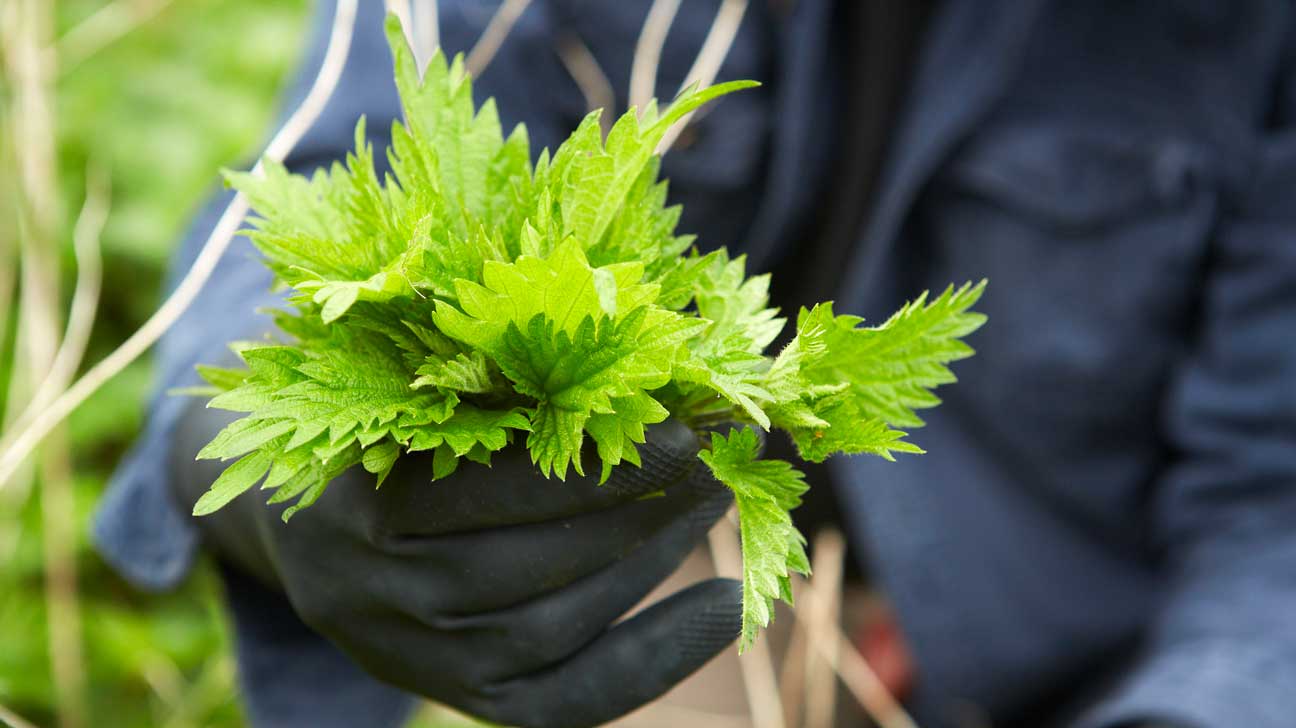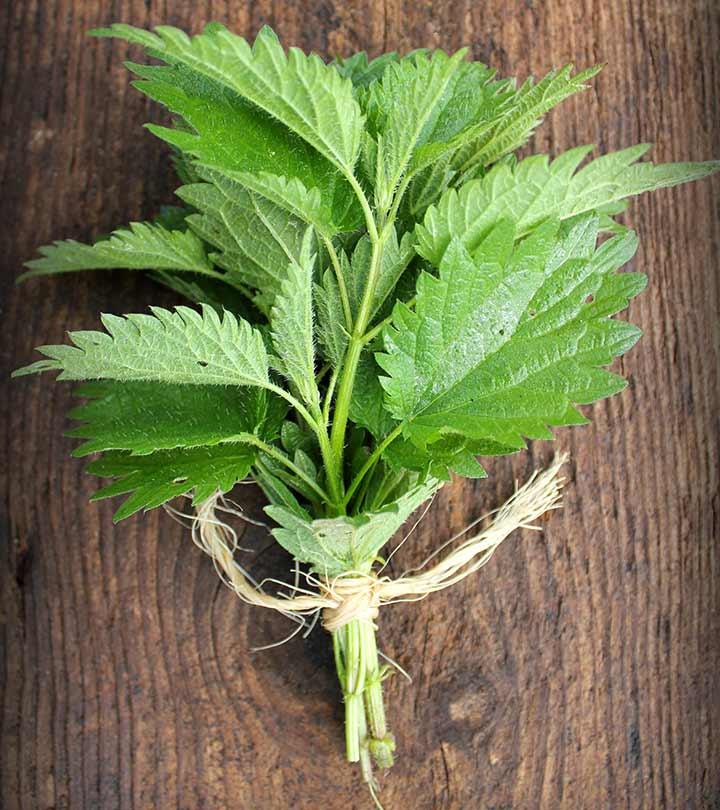Blog
Health benefits of nettle?

Nettle, often dismissed as a pesky weed, is a surprisingly potent source of health benefits. Used in traditional medicine for centuries, stinging nettle (Urtica dioica) is a nutritional powerhouse packed with vitamins, minerals, and powerful antioxidants.
One of nettle’s most well-researched benefits lies in its anti-inflammatory properties. Studies suggest that consuming nettle leaf tea or extract can significantly reduce joint pain and inflammation associated with arthritis. This relief may be attributed to nettle’s ability to inhibit inflammatory markers in the body.
For those suffering from hay fever and seasonal allergies, nettle offers a natural remedy. Its antihistamine properties act similarly to conventional antihistamines, helping alleviate allergy symptoms like sneezing, itching, watery eyes, and even a runny nose. Research suggests nettle may be just as effective as certain medications, with the added benefit of fewer side effects.
Nettle’s health benefits extend far beyond its anti-inflammatory and allergy-reducing effects. It’s a rich source of essential vitamins and minerals, including vitamins A, C, D, K, iron, calcium, and magnesium. This abundance of nutrients contributes to various aspects of health:
- Bone Health: Vitamin K plays a crucial role in blood clotting and bone health. Nettle, being an excellent source of vitamin K, promotes osteoblastic activity, which is the process of bone formation and strengthening.
- Strong Immune System: Vitamin C, a powerful antioxidant, is essential for a healthy immune system. Nettle’s high vitamin C content helps the body fight off infections and illnesses.
- Healthy Blood Sugar Levels: Some studies suggest that nettle leaf tea may help regulate blood sugar levels. This could potentially benefit individuals with prediabetes or type 2 diabetes. Research in this area is ongoing, but the initial findings are promising.
- Lower Blood Pressure: Studies indicate that nettle leaf tea may have a mild blood pressure-lowering effect. This could be beneficial for individuals with mild hypertension, but it’s important to consult with a healthcare professional before using nettle for this purpose.
Nettle’s benefits even extend to skin health. Its anti-inflammatory and antibacterial properties may help soothe eczema and acne by reducing redness, swelling, and irritation. Topical application of nettle cream or compresses can also provide relief from insect bites and stings.
However, it’s important to exercise caution with nettle. While generally safe for consumption when cooked, dried, or freeze-dried, fresh leaves contain microscopic hairs that can cause a stinging sensation. Additionally, as with any herbal remedy, it’s crucial to consult a healthcare professional before incorporating nettle into your routine, especially if you are pregnant, breastfeeding, or taking medications. Certain medications may interact with nettle, so it’s best to be cautious.
Anti-Inflammatory Powerhouse: One of nettle’s most well-researched benefits lies in its potent anti-inflammatory properties. Studies suggest that consuming nettle leaf tea or extract can significantly reduce joint pain and inflammation associated with arthritis, particularly osteoarthritis. This relief may be attributed to nettle’s ability to inhibit inflammatory markers in the body, such as interleukin-6 (IL-6) and tumor necrosis factor-alpha (TNF-alpha). These markers are known to play a key role in the inflammatory process. Research also indicates that nettle, when combined with conventional nonsteroidal anti-inflammatory drugs (NSAIDs), may allow for a lower NSAID dosage, potentially reducing the risk of side effects associated with these medications.
Natural Relief for Allergies: For those suffering from hay fever and seasonal allergies, nettle offers a natural and potentially effective remedy. Its antihistamine properties act similarly to conventional antihistamines, helping alleviate allergy symptoms like sneezing, itching, watery eyes, and even a runny nose. Research suggests nettle may be just as effective as certain medications, with the added benefit of potentially fewer side effects. Studies have shown that nettle leaf extract can inhibit the release of histamine, a key inflammatory compound involved in the allergic response. This translates to a reduction in allergy symptoms without the drowsiness that can accompany some conventional antihistamines.
A Wellspring of Essential Nutrients: Nettle’s health benefits extend far beyond its anti-inflammatory and allergy-reducing effects. It’s a rich source of essential vitamins and minerals, including vitamins A, C, D, K, iron, calcium, and magnesium. This abundance of nutrients contributes to various aspects of health:
- Bone Health: Vitamin K plays a crucial role in blood clotting and bone health. Nettle, being an excellent source of vitamin K, promotes osteoblastic activity, which is the process of bone formation and strengthening. This can be particularly beneficial for individuals at risk of osteoporosis or fractures.
- Strong Immune System: Vitamin C, a powerful antioxidant, is essential for a healthy immune system. Nettle’s high vitamin C content helps the body fight off infections and illnesses by stimulating the production of white blood cells, the body’s defense system against pathogens.
- Healthy Blood Sugar Levels: Some studies suggest that nettle leaf tea may help regulate blood sugar levels. This could potentially benefit individuals with prediabetes or type 2 diabetes. Research in this area is ongoing, but the initial findings are promising. Nettle may improve insulin sensitivity, allowing the body to utilize insulin more effectively and regulate blood sugar levels.
- Lower Blood Pressure: Studies indicate that nettle leaf tea may have a mild blood pressure-lowering effect. This could be beneficial for individuals with mild hypertension. Nettle may act as a diuretic, increasing urine output and potentially helping to reduce blood pressure. However, it’s important to consult with a healthcare professional before using nettle for this purpose, especially if you are already taking medications for blood pressure control.
Beyond Inflammation and Allergies: Nettle’s benefits even extend to skin health. Its anti-inflammatory and antibacterial properties may help soothe eczema and acne by reducing redness, swelling, and irritation. Studies suggest that topical application of nettle extract cream can significantly improve symptoms of eczema, offering relief from itching and discomfort. Additionally, nettle’s astringent properties may help regulate sebum production, a potential benefit for individuals with acne-prone skin.
Additional Potential Benefits: Research on nettle’s health benefits is ongoing, with promising findings in several areas:
- Urinary Tract Health: Nettle leaf extract may help alleviate symptoms of urinary tract infections (UTIs) due to its diuretic and anti-inflammatory properties.
- Prostate Health: Some studies suggest that nettle leaf extract may improve symptoms of benign prostatic hyperplasia (BPH), an enlarged prostate gland that can cause urinary problems in men.
- Anemia: Nettle’s high iron content may be beneficial for individuals with iron deficiency anemia. However, it’s important to note that nettle’s iron is not as readily absorbed as iron from animal sources.
In conclusion, nettle transcends its prickly reputation to emerge as a valuable natural remedy with a range of health benefits. From reducing inflammation and allergies to supporting bone health and skin health, nettle offers a unique and potentially powerful addition to a holistic wellness approach. Remember, consult with your doctor before using nettle, and enjoy the power of this versatile plant responsibly.
Related Blogs:
Nettle and its historical uses?
What is the culinary use of stinging nettles?
What are the traditional uses of nettle?
FAQ:
-
What are the health benefits of nettle? Nettle boasts anti-inflammatory properties that can help reduce joint pain and inflammation associated with arthritis. It also acts as a natural antihistamine, potentially relieving allergy symptoms. Nettle is a rich source of essential vitamins and minerals, contributing to bone health, a strong immune system, and potentially healthy blood sugar levels.
-
Can nettle help with allergies? Yes! Nettle’s antihistamine properties can help alleviate allergy symptoms like sneezing, itching, watery eyes, and a runny nose. Studies suggest it might be as effective as certain medications, with potentially fewer side effects.
-
How can I consume nettle? Nettle is generally safe for consumption when cooked, dried, or freeze-dried. You can enjoy it as a tea, extract, or add it to soups, stews, or stir-fries. Avoid fresh leaves due to their stinging hairs.
-
Does nettle have any side effects? While generally safe, nettle may interact with certain medications. Consult your doctor before using nettle if you are pregnant, breastfeeding, or taking medications. Additionally, avoid fresh leaves due to their stinging properties.
-
Can nettle help with skin problems? Nettle’s anti-inflammatory and antibacterial properties may help soothe eczema and acne by reducing redness, swelling, and irritation. Topical application of nettle cream may also offer relief from insect bites and stings.
-
Is nettle good for bone health? Yes! Nettle is an excellent source of vitamin K, which promotes bone formation and strengthening. This can be beneficial for individuals at risk of osteoporosis or fractures.
-
Can nettle help regulate blood sugar? Some studies suggest that nettle leaf tea may help regulate blood sugar levels, potentially benefiting individuals with prediabetes or type 2 diabetes. Research is ongoing, but the initial findings are promising.
-
Can nettle lower blood pressure? Studies indicate that nettle leaf tea may have a mild blood pressure-lowering effect, potentially helpful for individuals with mild hypertension. However, consult your doctor before using nettle for this purpose, especially if you are already taking blood pressure medications.
-
Are there any other potential benefits of nettle? Research suggests nettle may be beneficial for urinary tract health, prostate health, and even anemia. However, more research is needed in these areas.
-
How do I avoid getting stung by nettle? Fresh nettle leaves contain microscopic hairs that can cause a stinging sensation. Wear gloves when handling fresh leaves, and only consume cooked, dried, or freeze-dried nettle.




One thought on “Health benefits of nettle?”